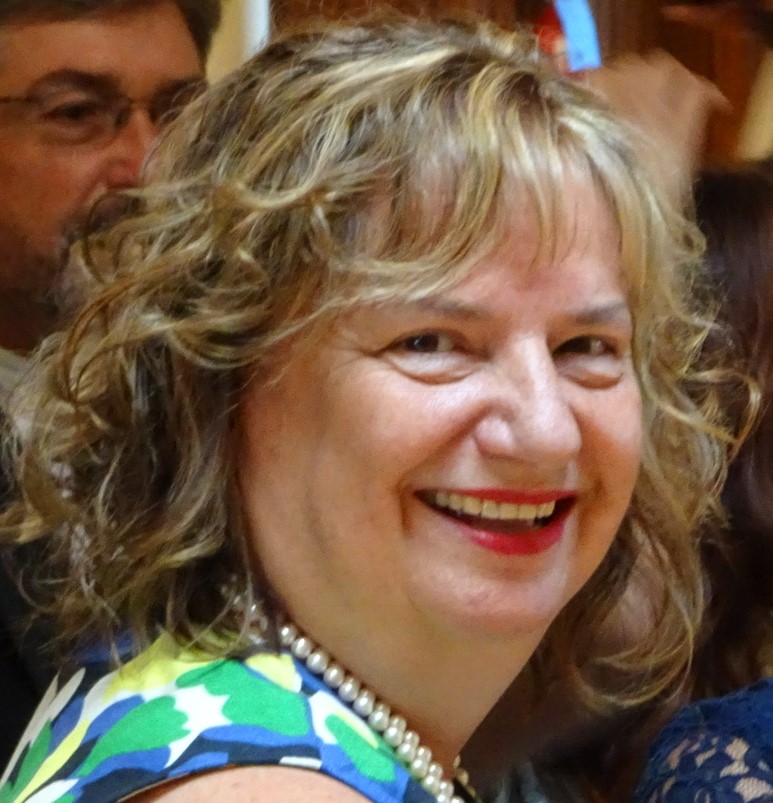Empey Lecture
The annual Empey Lecture hosted by the Department of Human Ecology focuses on research topics in aging, gerontology, family ecology, textiles, nutrition, family relationships and material culture.
2025 Empey Lecture Events
Hosted in partnership with the Vanier Institute for the Family on March 20, 2025
Who is family and why should we care?
This panel presentation will challenge the dominant cultural understanding of who belongs to a family, what a family looks like and how it functions. Social gerontologist Norah Keating will moderate the discussion of an expert panel: Yue Qian, Sue Languedoc and Doug Stollery. This conversation will advocate for a more inclusive definition of family and its role in fostering the well-being of its members.
Read a summary of this presentation prepared by the the Vanier Institute for the Family.
Defining Families: An innovative approach to child protection
Who is family? While most people know who is part of their own family, understandings of family vary in a multicultural, diverse society. Some perspectives on family challenge dominant cultural and legal assumptions about who belongs to a family, what a family looks like, and how it does and should function. Within this context, the Province of Manitoba has developed an innovative model of family justice to address child protection. In developing this model, a key question arose: “Who is family?” This question was particularly important given that many families and children affected by child protection legislation are Indigenous – and traditional Indigenous families’ perspectives on family differ from mainstream Canadian definitions. In this talk, Associate Chief Justice Gwen Hatch of the Manitoba Court of King’s Bench Family Division, will discuss the Court’s new Child Protection Model and how the idea of “who is family?” can play a role in legal cases involving issues in child welfare and adoption.
Our guest speaker

Associate Chief Justice Hatch was appointed to the Manitoba Court of King’s Bench (Family Division) in June 2013, and was appointed Associate Chief Justice of the Family Division in May 2020. She is Chair of the Child Protection Oversight and Implementation Committee and the Triage Implementation Committee of the Family Division, and is currently Chair of the Statutory Rules Committee of the Court of King’s Bench.
Associate Chief Justice Hatch is Chair of the Judicial Committee on Inter-jurisdictional Child Protection of the Canadian Judicial Council. She also serves on the Judicial Independence Committee of the Canadian Judicial Council.
Prior to her appointment to the Bench, Associate Chief Justice Hatch practised family law and wills and estate litigation. She represented parents in child protection matters early in her career, and subsequently acted as counsel for two Indigenous agencies for over 20 years.
Associate Chief Justice Hatch was chair of the St. Boniface Hospital and Research Foundation and The Estate Planning Council of Winnipeg. She served on the Board of Governors of The University of Manitoba, and was also a sessional instructor for the Legal Negotiation course at the Faculty of Law. She is a Life Council member of the Manitoba Bar Association.
Associate Chief Justice Hatch has presented papers on child protection for the National Judicial Institute, the Canadian Chapter of the International Association of Women Judges, and the Canadian Institute for the Administration of Justice, and papers on family law and estates and trusts issues in programs that were jointly organized by The Court of King’s Bench (Family Division), The Law Society of Manitoba and the Manitoba Bar Association. She is also the author of articles that have been published in the Estates and Trusts Reports and in publications of The Law Society of Manitoba Legal Studies Department.
2024 Empey Lecture
Re-imagining solutions for gender equality in a time of crisis
Gender equality remains an urgent and an under-actioned global priority, yet there is a sense of intensified polarization on gender equality around the world and within multilateral spaces. Tensions between human rights and development are at the center of this friction. Ahead of Beijing+30 in 2025, how do we foster a global movement for urgent action and accountability for gender equality without compromising on the systemic changes that are needed to guarantee human rights for all women and girls in all their diversity? How do we continue to prioritize gender equality during crises, including the climate crisis and conflicts? In this presentation, Jemimah Njuki will explore the tensions using examples from work at UN Women, and how we can re-imagine a win-win situation for gender equality and for the world while galvanizing global action.
Our guest speaker
Jemimah Njuki is the Chief of the Economic Empowerment section at UN Women where she leads work on sustainable development, women in the world of work, transforming care systems and sustainable finance. She is a recognized leader on gender equality and women's empowerment, having directed global initiatives promoting women's economic empowerment. Jemimah previously worked at the International Food Policy Research Institute (IFPRI) as the Director for Africa, where she worked with African governments and key stakeholders to develop evidence for transformative policy change.
She led the UN Food Systems Summit's Gender Equality and Women's Empowerment Lever of Change and was instrumental in establishing the Coalition to Make Food Systems Work for Women and Girls, and the Global Food 5050 initiative. She has led other global initiatives on gender equality and women’s economic empowerment including International Development Research Centre’s (IDRC) Growth and Economic Opportunities for Women (GRoW), the Women in Agriculture programme at CARE USA, and the Poverty, Gender, and Impact programme at the International Livestock Research Institute. She has been named among the top 100 gender and policy experts.
Jemimah holds a PhD in Development Studies and has published widely on gender equality and women’s empowerment.
2023 Empey Lecture

Reconciliation and healing through the Nunavut Inuit Heritage Centre
The legacy of colonialism is felt strongly in Nunavut. Among the many harms experienced by Nunavut Inuit is the loss of cultural heritage, including cultural belongings, artistic expressions, traditional knowledge, and language. Join us for an exploration of the issues and solutions to preserving and ensuring the continuity of Nunavut Inuit heritage.
Our evening includes a fascinating presentation from our guest speaker Catherine C. Cole, director of planning for the Nunavut Inuit Heritage Centre, which is under development by the Inuit Heritage Trust. Attendees will then have exclusive access to the TELUS World of Science exhibition Arctic Journey and its immersive learning experience. Sample the northern delicacy arctic char, and enjoy appetizers while exploring the land and stories of the north.
Our guest speaker
 Catherine C. Cole, MA, FCMA, is the Director of Planning for the Nunavut Inuit Heritage Centre in Iqaluit and Principal Consultant, Catherine C. Cole & Associates in Edmonton. A former museum curator and interpreter, she has consulted on heritage issues throughout Canada and internationally for 30 years. Catherine is Métis and has made both a professional and personal commitment to decolonization and reconciliation. She is the recipient of many awards including the Governors Award from the National Trust for Canada for an Indigenous Heritage Circle report she co-authored on Indigenous Heritage and the United Nations Declaration on the Rights of Indigenous Peoples (2022), the Lieutenant Governor’s Award from the Alberta Museums Association (2021), and ICOM Canada’s International Achievement Award (2019). She is a Fellow of the Canadian Museums Association (FCMA); the Culture and Heritage Community Chair for the National Indigenous Knowledge and Language Alliance (NIKLA); a member of Parks Canada’s Indigenous Cultural Heritage Advisory Council (ICHAC); an International Advisory Group Member for Renewing Relations: Indigenous Heritage Rights and (Re)conciliation in Northwest Coast Canada, at the University of Exeter, UK; and from 2013-2020 was Secretary-General of the Commonwealth Association of Museums (CAM), a network of postcolonial museums and professionals that reflects on colonial legacies and develops new international relationships and working practices.
Catherine C. Cole, MA, FCMA, is the Director of Planning for the Nunavut Inuit Heritage Centre in Iqaluit and Principal Consultant, Catherine C. Cole & Associates in Edmonton. A former museum curator and interpreter, she has consulted on heritage issues throughout Canada and internationally for 30 years. Catherine is Métis and has made both a professional and personal commitment to decolonization and reconciliation. She is the recipient of many awards including the Governors Award from the National Trust for Canada for an Indigenous Heritage Circle report she co-authored on Indigenous Heritage and the United Nations Declaration on the Rights of Indigenous Peoples (2022), the Lieutenant Governor’s Award from the Alberta Museums Association (2021), and ICOM Canada’s International Achievement Award (2019). She is a Fellow of the Canadian Museums Association (FCMA); the Culture and Heritage Community Chair for the National Indigenous Knowledge and Language Alliance (NIKLA); a member of Parks Canada’s Indigenous Cultural Heritage Advisory Council (ICHAC); an International Advisory Group Member for Renewing Relations: Indigenous Heritage Rights and (Re)conciliation in Northwest Coast Canada, at the University of Exeter, UK; and from 2013-2020 was Secretary-General of the Commonwealth Association of Museums (CAM), a network of postcolonial museums and professionals that reflects on colonial legacies and develops new international relationships and working practices.
The legacy of colonialism and intergenerational trauma is strongly felt in Canada’s North. Among the many harms experienced by Inuit is the loss of cultural heritage, which as the Indigenous Heritage Circle indicates is “complex and dynamic.” Indigenous Heritage encompasses ideas, experiences, belongings, artistic expressions, practices, knowledge, and places that are valued because they are culturally meaningful and connected to shared memory. Indigenous Heritage cannot be separated from either Indigenous identity or Indigenous life. It can be inherited from ancestors or created by people today.
The importance of and need for initiatives and actions to facilitate cultural healing and revitalization have been asserted repeatedly for 30 years - by the Nunavut Agreement (1993), the Royal Commission on Aboriginal Affairs (1996), the Truth and Reconciliation Commission (2015), the report on Missing and Murdered Indigenous Women and Girls (2019), and most recently in Canada’s commitment to implement the United Nations Declaration on Rights of Indigenous Peoples (2021). Despite these assertions, concrete progress has been limited – until recently.
The Inuit Heritage Trust, together with the other four Designated Inuit Organizations in Nunavut, namely Nunavut Tunngavik Incorporated (NTI), Qikiqtani Inuit Association (QIA), Kitikmeot Inuit Association (KitIA), and the Kivalik Inuit Association (KivIA), is taking the lead in developing the Nunavut Inuit Heritage Centre in Iqaluit. The Centre will allow the return of the Nunavut Collection, the repatriation of cultural belongings from around the world, and the development of collections-based exhibitions and programs. In addition to detailing the ways in which the Nunavut Inuit Heritage Centre will contribute to cultural healing and revitalization for Nunavut Inuit, this presentation will describe the processes and practices that are being used to develop and create the Centre, along with challenges, successes, and key learnings.
About the Lecture Series
The Empey Lecture is delivered annually in honour of professor Elizabeth Empey, Dean of Home Economics at the University of Alberta from 1960 to 1976. The lectureship commemorates the many contributions made by professor Empey to the profession of home economics and nutrition. Public lectures are delivered on issues related to family science, material culture, clothing and textiles or nutrition.
2022 Empey Lecture

Nutrition and Immunity: Infant Nutrition and Lessons to Combat COVID-19
What if the addition of omega-3 fatty acids to a mom’s diet could allow her infant to be safer from allergies, viruses and even COVID-19 in the future? Our presenter professor Catherine Field has research to show that these fatty acids can be key to building our immune systems and explores how nutrition in the early years impacts our long-term health.
Missed the 2022 Empey Lecture? Watch it below!
Our guest speaker
Catherine Field, ’88 PhD, is a Canada Research Chair in Human Nutrition and Metabolism in the Department of Agricultural, Food & Nutritional Science at the University of Alberta. Her research program centres on the effect of nutrition on the immune system. Current research includes establishing the role of polyunsaturated fats on immune development, the use of fatty acids in the prevention and treatment of breast cancer and identifying the association between nutritional status and maternal mental health and infant neuro-physical development. Professor Field has published more than 275 peer-reviewed publications and trained over 100 students in research. She is a fellow of the Canadian Council for Health Research and an associate editor for the journal Advances in Nutrition.
